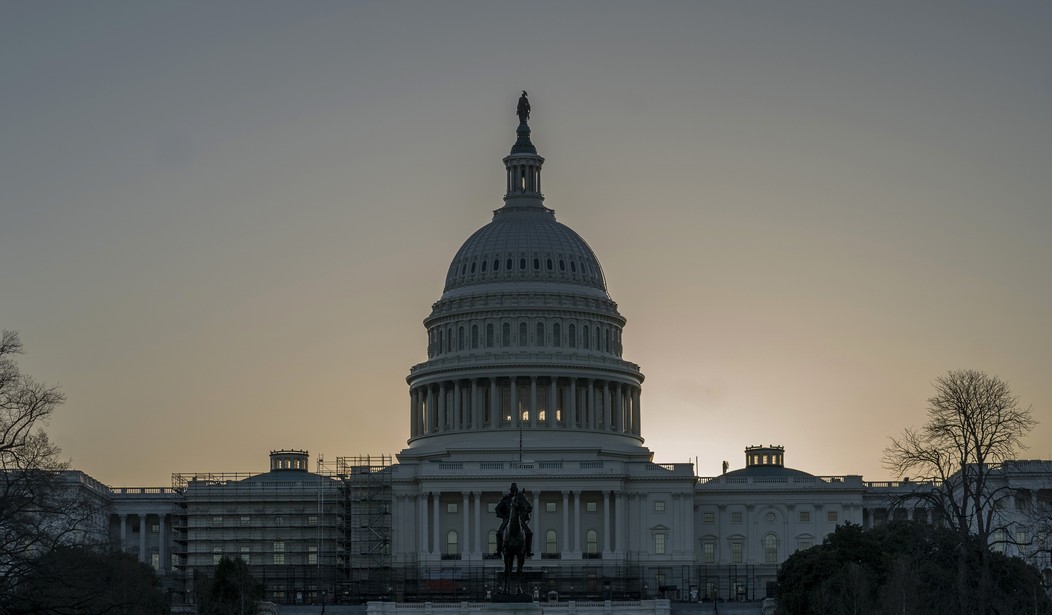Congress is battling over levels of spending that likely will cause a government shutdown at the end of the month. The battle will come down to policy differences and the out-of-control spending that resulted from post-Covid appropriations levels. This problem could be solved if Congress had the will to make some tough decisions.
The pathway to getting something passed by the end of the month to keep the government open is blocked. House Speaker Kevin McCarthy presented a road map for keeping the government funded past Oct. 1, as reported by The Wall Street Journal this week, “but immediately ran into new roadblocks from spending hawks and fresh grumbling that he should be ousted from his post.”
Speaker McCarthy proposed passing some national security bills, then a Continuing Resolution (CR) to keep the government open for a few weeks to buy more time to cut a deal. A CR would continue spending past the Sept. 30 deadline signaling the end of the fiscal year. That move was blocked by the House Freedom Caucus on a procedural vote. Conservatives in the House are not going to vote for any spending bill, including a CR to keep the government open, because the levels in a CR are at bloated, post-pandemic spending levels.
The approach the Freedom Caucus is taking seems like a “fool me once, shame on you, fool me 26 times, shame on me.”
Congress could slash all discretionary programs and not balance the budget. The biggest driver that has created our $32 trillion national debt are entitlements. The bulk of all federal spending is mandatory spending including health programs like Medicare, Medicaid, tax credits and CHIP (health care for low-income children). Also included in mandatory spending are Social Security benefits, income security programs, and retirement plans. The budget can’t get balanced without Congress making tough decisions on how to control entitlement programs.
Recommended
The numbers being spent on these programs is already crippling and it continues to grow. Romania Boccia and Dominik Lett wrote for the Cato Institute on May 30, 2023, “the federal government will spend $6.3 trillion in 2023, 27 percent is discretionary and 73 percent is mandatory.” Over $4 trillion in spending is on the mandatory side this year at a time when the Congressional Budget Office (CBO) projects that revenues will be about $4.8 trillion. Savings can only be had by across-the-board cuts to mandatory spending.
On the discretionary side, there are opportunities for cuts that can be passed in concert with some entitlement reform to get closer to balance. The biggest of which is the Defense Department’s troubled F-35 Joint Strike Fighter program – which we have talked about here before – that is projected to cost more than $1 trillion over the lifetime of the program.
With all the resources being spent on this program, one would think this fighter jet would be the Rolls Royce of the Pentagon, yet the program has been rife with problems. The most recent is yet another delivery delay because of computer software problems. The contractor is delivering far less fighter jets than they were estimated to deliver this year. Some argue that the F-35 is an overpriced lemon that does not work. Some worry that certain military contractors have become Corporate Welfare Kings and act like they have an entitlement to federal funds. Maybe it is time to put the program on pause to shift to less expensive fighter jets that have worked for years for the military.
A member of Congress should use the Citizens Against Government Waste “Pig Book” as a roadmap to sensible spending cuts. The most recent edition to the book exposed “7,396 earmarks, an increase of 43.9 percent from the 5,138 in FY 2022, at a cost of $26.1 billion, an increase of 38.1 percent from the $18.9 billion in earmarks in FY 2022.” They report that “since FY 1991, CAGW has identified 124,212 earmarks costing $437.5 billion.” Those are significant numbers and opportunities for taxpayer savings.
If the government is going to shut down over high spending, it would make more sense to instead shut down programs that are causing massive annual deficits.
























Join the conversation as a VIP Member